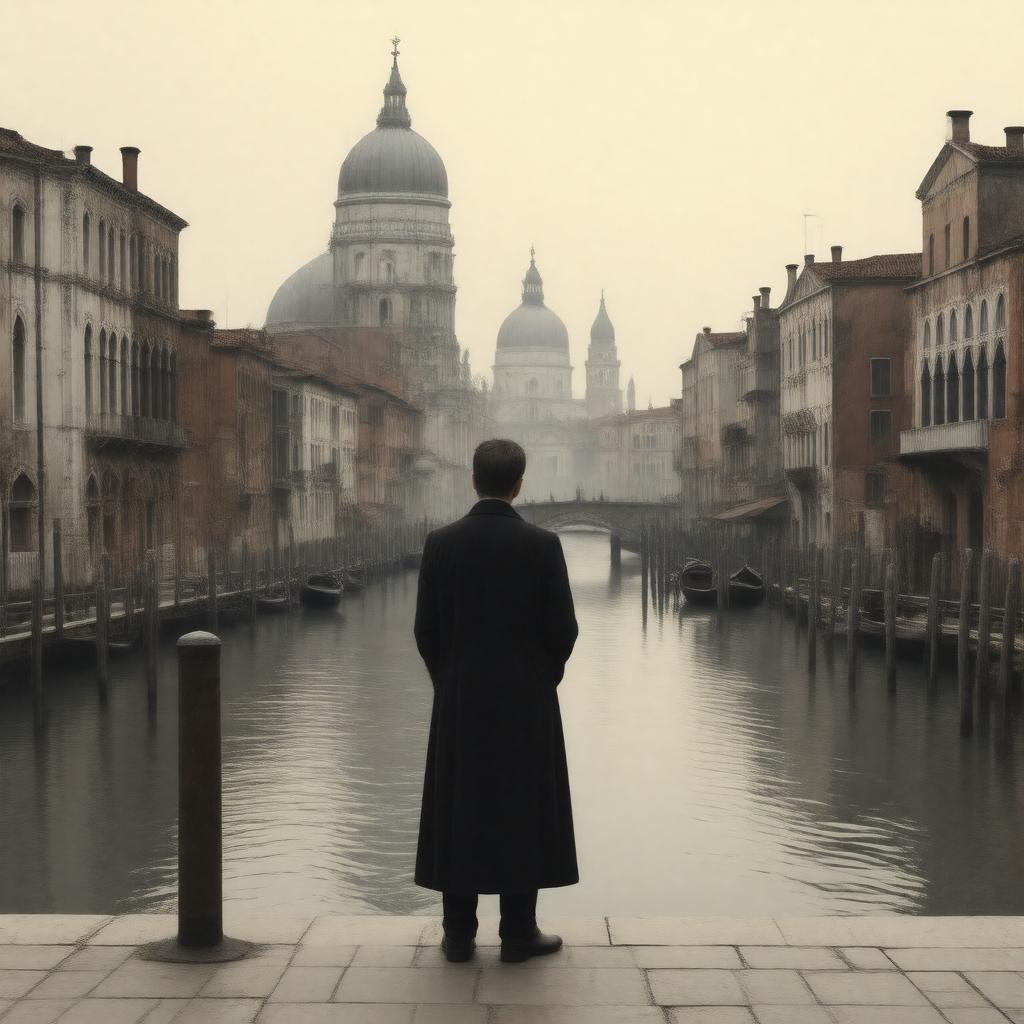Prompt
Create an image of a melancholic and decaying Venice, with ornate Gothic-style architecture in the background, reflecting the themes of art, beauty, and decay, as depicted in the novel "Der Tod in Venedig" (Death in Venice) by Thomas Mann, with Gustav von Aschenbach standing contemplatively at the edge of a canal, lost in thought, surrounded by lavish yet worn facades and bridges, under a somber and eerie atmosphere that captures the essence of the modernist literary masterpiece.

